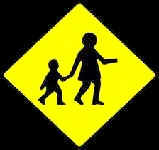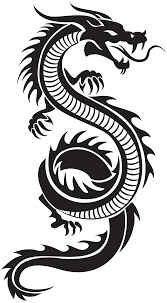| |
 |
Bilingual Dictionary Errors
English-Korean & Korean-English
Erratum |
 |
© 1997-present, by Leon of
Leon's Planet
Permission to copy for
educational purposes granted, but please give me credit for compiling the list.
Foreword
|
In
the pursuit of
truth
in
applied linguistics...
Note:
I do not suppose that this is a comprehensive, although it is a pretty long and
good list. It is the result of 10 years of living in Korea, learning the
Korean language. This list will remain
on this website 'till the cows come home (whenever that might be). Please,
if you have any power to do so, please do what you can to stop the
falsehoods!!!!!
|
My
other Korean-related Pages:
My
Expat Blog
(Re: My 10-yr Life in Korea)
Korean
Food Translated
(fairly comprehensive list)
Korean
Origins
(Where did they come from?)
Konglish
1
(Konglish Interlanguage)
Konglish
2
(Konglish Lexis)
Konglish
3
(Konglish Pronunciation)
Korean
Dictionary Errors
(This page)
Korean
Language Lessons
(by Leon)
|
English-Korean Errors / Erratum
for Korean to English
Errors, scroll down
ERROR
(잘 못) |
CORRECTION
Eng-K
(정정 영-한) |
CORRECTION K-Eng
(정정 한-영) |
family : 가족
(ga-jok) |
family : 핵가족
(haek-ga-jok) |
가족 : household |
| Linguistic
Notes: haek-ga-jok literally means
"nuclear-house-clan". In English, the term "nuclear
family" is only used by sociologists, to define the modern trends
in family-making. In the past, the term "family" had the
same meaning as "household", but not any more. In fact,
although many current English-English lexicons still list that meaning first,
it should be known that definitions are listed in chronological order,
and the first definition is often obsolete. |
| square : 네모
(ne-mo) |
square : 정사각형
(jeong-sa-gak-hyeong) |
네모 : quadrilateral;
tetragon |
Etymology
Notes: "Quadrilateral" is from Latin. "Quadri"
means four; "lateral" means side(s).
"Tetragon" is from Greek, but the word is NOT commonly used in
English. "Tetra" means four; "Gon" means
side(s).
It is interesting to me that we use the Latin word for a four-sided
figure, but any figure with more than four sides, is labeled with the
Greek word; like Pentagon (five sides). |
| tree : 나무 (namu) |
tree : 밑동 있는 나무 |
나무 : shrub/tree/etc
나무 also means: wood |
| Linguistic
Notes: this is a classic case where the Korean word is a hypernym
of the English word(s). In Korean, the word "namu" means
any wood (alive or dead), or any bush or shrub with a hard, wood-like
stem. English does not have a word to match the Korean word
exactly, but "wood" would be a close approximation. |
| flower : 꽃 (ggot) |
flower : 꽃부리
(ggot bu-ri) |
꽃 : flowering plant |
| fruit : 과일 (gwa-il) |
fruit : 열매 (yeol-mae) |
과일 : ?
maybe: "common table fruits" |
| Linguistic
Notes: in the botanical sense of the word "fruit",
"yeol-mae" matches perfectly. In the colloquial sense of
the word "fruit", "gwa-il" matches perfectly. |
| pumpkin : 호박 (ho-bak) |
pumpkin : 늙은 호박
(neulgeun hobak) |
호박 : edible gourd; squash |
| Linguistic
Notes: The term hobak seems to denote any edible
gourd, which is NOT sweet. There are two common hobaks in
Korea: neulgeun hobak (old hobak) and ae hobak (baby hobak).
The old hobak is a pumpkin, and the baby hobak is a
zucchini. |
| dove : 비둘기 (bi-dul-gi) |
dove : 하얀 비둘기
(ha-yan bi-dul-gi) |
비둘기 : pigeon |
| worm : 벌레 (beolle) |
worm : 다리 없는 벌레;
(dari eopneun beolle)
지렁이
같은 벌레
(jireongi gateun beolle) |
벌레 : bug |
| Linguistic
Notes: I don't know if there is a scientific (biological) term for
worm in Korean. There must be, but even if there is, lay people
wouldn't know it when they heard it (or saw it). And there
evidently is not word in the vernacular to match "worm".
So, I've used the translation: dari eopneun beolle, which
literally means legless bug. Jireongi
means earthworm. So, I've used Jireongi gateun
beolle, which means earthworm-like bug. |
hip : 엉덩이
(eong-deong-i) |
hip : 골반 (gol-bal) |
엉덩이 : buttocks |
favorite : 마음에 드는
(ma-eum-e deu-neun) |
favorite : 가장 좋은
(ga-jang joh-eun) |
마음에 드는 : liked |
charming : 매력 있는
(mae-ryeok itneun) |
charming : 기쁘게 하는
(gi-bbeu-ge ha-neun) |
매력 있는 : enchanting |
frustrated : 실망한
(shil-mang-han) |
frustrated : 좌절된
(joa-jeol-doen) |
실망한 : disappointed |
professional : 전문가
(jeon-mun-ga) |
professional : 직업인
(jig-eob-in) say /jigeobin/
NOTE: professionals are paid for
their skill(s) |
전문가 : specialist, expert |
| Linguistic
Notes: jeon-mun-ga literally means "specialist" or "expert". Unfortunately,
some professionals are NOT experts. I'd like to make this point
very clear. A first-year teacher is a professional, because she/he
receives a salary, but he/she is most-likely lacking in skills, which
come with time and experience. |
amateur : 비전문가
(bi-jeon-mun-ga) |
amateur : 실업자
(shil-eop-ja)
NOTE: amateur may or may not have great
skill, but is NOT paid for his/her skill |
비전문가 : novice |
| Linguistic
Notes: shil-eop-ja literally means: "unemployed person".
So, it is NOT a good match for "amateur", but I cannot find a
good match in the Korean language. However, I would like emphasize
that an amateur DOES NOT RECEIVE payment for her/his skill (good or bad
skill, doesn't matter). But, in the vernacular, we generally think
of an "amateur" as one who lacks skill. |
| ago : 전에 (jeon-e) |
ago : 지금 전에
(je-geum jeon-e) |
전에 : before |
calm : 고요한
(go-yo-han) |
calm : 상냥한 (sang-nyang-han)
부드러운 (bu-deu-reo-un)
calmly : 살살 (sal-sal) or...
bu-deu-reop-ge |
고요한 : quiet |
| Linguistic
Notes: "calm" means not moving or moving very little,
which I thing is close to sang-nyang-han, but bu-deu-reo-un
means "soft", which has both the concrete and abstract
meanings, just like English does. In this case, we are talking
about the abstract meaning of "soft", as in: soft/calm music,
or soft/calm gestures. |
| still : 조용한, 고요한 |
still : 가만이 있는 |
조용한 : quiet |
| Linguistic
Notes: "still" means not moving at all. |
shrew : 잔소리 하는 여자
(jan-sori ha-neun yeo-ja) |
shrew : 두더지 (du-deo-ji) |
잔소리 하는 : nagging |
| Linguistic
Notes: jan-sori ha-neun yeo-ja literally means:
"nagging woman", obviously taken from the Shakespearean play:
"The Taming of the Shrew", "shrew" being an obsolete
metaphor for a nagging woman.
My late wife defined jan-sori
as any noise which irritates or annoys. So, it has a much broader
meaning than "nagging". |
urchin : 장난꾸러기
(jang-nan-ggu-reo-gi) |
urchin : 성게 (seong-ge) |
장난꾸러기 : prankster |
Linguistic
Notes: "urchin" can be used as a metaphor for a
troublesome child.
Seong-ge literally means: "star crab". |
school : 학교
(hak-gyo) |
school : 가르치는
곳
(ga-reu-chi-neun got) |
학교 : public
school |
| Linguistic
Notes: "school" is a hypernym of all learning
institutions. To differentiate, one must use any of a number of
modifiers, thusly: 1.
primary/elementary school; 2. secondary school; 3. middle school; 4. jr.
high school; 5. sr. high school; 6. school of higher learning (e.g.,
college or university); 7. school of English (i.e., and English
Academy); 7. Sunday school; 8. home school (home schooling), etc. |
teacher : 선생,
교사
(seon-seng, gyo-sa) |
teacher :
가르치는 사람
(ga-reu-chi-neun sa-ram)
NOTE: any person who teaches, is
a teacher.
|
선생
: Firstborn, One's Elder
교사
: Public School Teacher |
Lingusitic
Notes: Seon-seng is word is a Sino-Korean word composed of two
morphemes: seon (first) & seng (birth)... but usage is of paramount
importance:
usage1: title of respect to any older
person [Note: In China, only this usage is appropriate]
usage2: title of respect to a mentor or
teacher, who is "Older" in the sense that he/she has more
experience/knowledge/training in a particular field
|
except
: 제하고 (je-ha-go);
외에는 (oe-e-neun) |
except
: 제하고 (je-ha-go) |
외에는
: outside of, in addition to |
efficient
: 능률적인,
(neung-ryeul-jeog-in)
효과 있는,유효한
(hyo-gwa itneun, yu-hyo-han) |
efficient
: 아끼는; 없애는
(a-ggi-neun: eops-ae-neun} |
효과
있는 : effective |
Linguistic
Notes: The bilingual lexicons in Korea translate the words
"effective" and "efficient" identically. Yet,
the smarter students perceive that there is some difference in usage,
which is true, but differences in usage is not due to the whim of native
speakers, but rather due to completely different meanings. Look at
the table below.
| Effective |
Efficient |
| An
effective car, performs as I would have it perform, generally
with regard to speed, power and toque. |
An
efficient car conserves gas, and thus conserves money. |
| An
effective learning method produces desired results with regard
to memory and ability to "regurgitate" learned
material. |
An
efficient learning method conserves time and energy (and the
implication is that it produces desired results with less time
and energy). The problem is that the
"effects" may be ephemeral. |
It helps to look at the meaning of the root
words, and the root meanings are completely opposite!
The root of effective is effect.
"Effect" (v.t.) means
to cause or to produce (생기게 하다).
The root of efficient is efface.
"Efface" (v.t.) means
to eliminate, to eradicate (없애다)
| Right |
Meaning |
Awkward |
Meaning |
| time-efficient
thing |
time-eliminating
thing |
time-effective
thing |
time-producing
thing |
| cost-efficient
thing |
cost-eliminating
thing |
cost-effective
thing |
cost-producing
thing |
| fuel-efficient
thing |
fuel-eliminating
thing |
fuel-effective
thing |
fuel-producing
thing |
| resource-efficient
thing |
resource-eliminating
thing |
resource-effective
thing |
resource-producing
thing |
| profit-effective
thing |
profit-producing
thing |
profit-efficient
thing |
profit-eliminating
thing |
| learning-effective
thing |
learning-causing
thing |
learning-efficient
thing |
learning-eradicating
thing |
NOTE: apparently, even native
speakers get confused, because I've commonly heard people say,
"cost-effective", when they mean "cost-efficient".
2nd NOTE: Also, when we say/write
"fuel-efficient", we don't mean it uses a lot of fuel; we mean
it eliminates the need for a lot of fuel. Same thing with
"time-efficient".
|
conserve
: 보존하다,
(bo-jon-ha-da)
유지하다 (yu-ji-ha-da),
보호하다 (bo-ho-ha-da) |
conserve
: 아끼다
(a-ggi-da) |
보존하다
: keep; protect
유지하다 : maintain
보호하다 : protect; preserve |
| local
: 지방의 (ji-bang-eui) |
local
: 가까운 (ga-gga-un) |
지방의
: country (a.)
(in the countryside) |
| Linguistic
Notes: ji-bang means countryside and ji-bang-eui
means of the countryside. "Local" means near a given
place. So, when the doctor gives a "local anesthetic",
it is near (and only has affect near) the place of surgery. When
the doctor gives a "general anesthetic", it has affect on the
whole body. When talking about geography, "local" means
near a given place (if specified), or near the speaker (if the place is
not specified). |
find
out : 발견하다;
(bal-gyeon-ha-da)
생각해 내다
(saeng-gak-hae nae-da) |
find
out : 알아내다
(ar-a-nae-da) |
발견하다
: discover, find
생각해 내다 : figure out
BONUS: 알아보다 : try to find out |
protocol
: 의전
(eui-jeon) |
protocol
: 전 (jeon) |
의 (eui) =
ceremony
전 (jeon) = law, rule, protocol
Therefore:
의전 = ceremonial protocol |
purpose
: 목적
(mok-jeok) |
purpose
: 이유
(i-yu) |
목적
: objective, aim, goal
이유 : reason, purpose |
Linguistic
Notes: While the meanings of reason and purpose are quite similar,
the grammar and usage are a bit different.
| Usage of
"reason" |
Usage of
"purpose" |
| What
is the reason for working? |
What
is the purpose of working? |
| What
is the reason for a toy's existence? |
What
is the purpose of a toy? |
| The
reason for working is to make money. |
The
purpose of working is to make money. |
| The
reason for a toy's existence is to be played with. |
The
purpose of a toy is to be played with. |
|
edit : 편집하다
(pyeon-jip-ha-da) |
edit : 수정하다
(su-jeong-ha-da) |
편집하다
: do layout work |
| should
: ~하여야 하다 |
should
: ~하면 더 좋다 |
~하여야
하다 : have to/must |
| had
better : ~하면 더 좋다 |
had
better : ??? |
~하면
더 좋다 : should |
| Linguistic
Notes: I don't know that there is a suitable translation of
"had better" in Korean. Honestly, I think that the
translation given could be the nearest thing the Korean language has,
but the function is VERY different from "should". This
should be explicated by reference materials that disseminate information
about the English language, but it isn't. Thus, most Koreans,
grossly and erroneously use "had better" to their
"betters", when they had better not. [I'm specifically
referring to how Koreans use it to their foreign teachers/professors,
saying things like, "You had better teach us well." At
such times, I feel like saying, (and sometimes do): "You had better
learn how to speak politely, or else you are going to make a lot of
people angry." That of course leads into my dissertation
about the usage of "had better".
I am extremely irate with LONGMAN (never did
like Longman), because the English text books in China are produced by
Longman (in cooperation with the Chinese Education Press).
According to Longman's text book, had better, should and ought to are
all the same. This is HORRIBLE! Longman's English reference
materials are among the MOST popular in Asia. This is really too
bad. Take for example Longman's learners dictionary of
English. It is liked by learners for the simple definitions
therein. I vehemently dislike many of the definitions, because
they are often wrong (due to the simplicity and brevity thereof).
If learners of English want the best definitions with sample sentences,
they should look into COBUILD's
English-Learner's Dictionary, or Oxford's English-Learner's
dictionary. [But, I am NOT endorsing Oxford's bilingual
dictionaries, because it is often just as wrong and any other bilingual
dictionary].
For more information on the
differences between:
had better / have to & must /
ought to & should
please visit my SYNONYMS
page. |
Korean-English Errors / Erratum
ERROR
(잘 못) |
CORRECTION K-E
(정정 한-영) |
CORRECTION E-K
(정정 영-한) |
| 힘내다 : Cheer up |
힘내다 : put forth full might; put your
shoulder to the wheel; be energetic |
Cheer up : 기분 풀다 |
| 정 : Affection; Love |
정 : Platonic love or philanthropic love |
Affection : 감정, 특히 좋은 감정들 |
| 한 : grudge; regret |
한 : melancholy |
grudge : 원한
regret : 후회 ; 미련 |
| 상식 : common sense |
상식 : common knowledge |
common sense : ??? |
| 장난꾼 : urchin |
장난꾼 : prankster; mischievous child |
urchin : 성게 |
| 솔직한 : frank, candid, honest |
솔직한 : honest (+,-)
candid (+)
frank (-) |
n/a |
| 바보 : a fool; a stupid person |
바보 : an idiot; a moron; a dummy |
fool : 현명하지 못하는 사람 |
| 비둘기 : dove; pigeon |
비둘기 : pigeon |
dove : 하얀 비둘기 |
| 빵 : bread |
빵 : baked, leavened
ware(s) |
bread : 식빵 |
| 호박 : pumpkin; a squash |
호박 : an edible gourd; [미] squash |
pumpkin : 늙은 호박 |
| 억울하다 : mortify |
억울하다 : feel unjustly accused |
mortify : 당황하게 하다 |
| 속상하다 : feel sore, be vexed |
속상하다 : feel torn up inside;
feel "hurt" (emotionally) |
feel sore : 쑤시다;
[은유법으로] 화나다
be vexed : 짜증 나다 |
부끄럽다 : 1. be shy (bashful)
2. be ashamed |
부끄럽다 : 1. act shy
2. be/act ashamed |
be shy (bashful, timid) :
내성적이다 |
답답하다 : 1. be stuffy (cramped)
2. be inadaptable; be narrow-minded
3. be impatient; be irritable |
답답하다 : 1. ((a room can)) be stuffy
or cramped
2. ((a person can)) be narrow-minded
3. [metaphorically] feel blocked, frustrated, trapped |
be impatient : 참을성 없다
be irritable : 짜증날 수 있다 |
| 아주머니 :
aunt; auntie |
아주머니 : Mrs; Ma'am |
aunt: 고모, 이모, 숙모...
auntie : "이모"
(친척은 아님)
|
| 아저씨 : uncle |
아저씨 :
Mister; Sir |
uncle1: 삼촌, 고모부, 숙부, 이모부
uncle2 : "삼촌"
(친척은 아님)
|
| 유자 : citron
(citrus medica) |
유자 : citrus
junos |
citron : ???
NOTE: The citron (citrus medica) and the
citrus junos are very similar, but different in size; the citrus junos
is much bigger. |
| 모과 : quince |
모과 : oriental
quince |
quince : 양모과 |
| 매실 : ume; plum |
매실 : oriental
apricot
(Also Known As: "Japanese Apricot")
Maeshil is to the apricot as the lime is to the lemon. It's
scientific classification is: prunus mume |
ume : ???
plum : 자두 |
| 참외 : musk
melon |
참외 : a kind of
musk melon: Scientific name: cucumis melo,
(which I believe to be a kind of
chate melon) |
musk melon : ???
NOTE: There are many kinds of musk melons;
chate melons are a kind of musk melon, and I firmly believe Chamoe
to be a chate melon. |
| 멜론 : melon |
멜론 : cantaloupe |
melon :
수박, 참외, 멜론, 등... |
| 아끼다 :
grudge; spare |
아끼다 :
conserve; save |
grudge :
인색히 하다
spare : (1) 파괴하지 않다,
해치지 않다 (2) 벌 주지 않다 (3) 고생을 시키지 않다
(4) 피하다 (5) 절약하다 (6) 남에게 시간, 돈, 등을
할애하다 |
| 재직하다 :
hold office; be in office |
재 : exist, have
직 : duty, job
재직하다 : to be employed; to have a job
재직 기간 : period of employment |
"hold
office" or "be in office" is ONLY used for public
officials |
| 몸살 : fatigue |
몸살 : involves
much much more than just fatigue, according the the Korean-Korean
lexicon, 몸살 consists of the following: a. EXTREME FATIGUE
b. BODY ACHE,
esp., arms and legs
c. THE CHILLS,
i.e., high fever
[I've had it... it is like a mild form of
meningitis & a severe case of influenza combined] |
fatigue : 피로 |
I
recommend only the best:
Dong-A
Prime Dictionaries
| |

English |
|

Spanish
|

Korean |

Mongolian |

Chinese |
|

Parents of
Homeschool
|
|

Halloween
|
|

Thanksgiving
|
|

Winter Solstice
|
|

Christmas
|
|

New Years
|
|

Chinese Lunar
New Year
|
|

Valentine's
|
|

|
|

Easter
|
|

All About
Dr. Seuss
|
|

Roald Dahl
|
|

Prepper's
Pen |
|

Ways to
Help
Leon's Planet
|
|